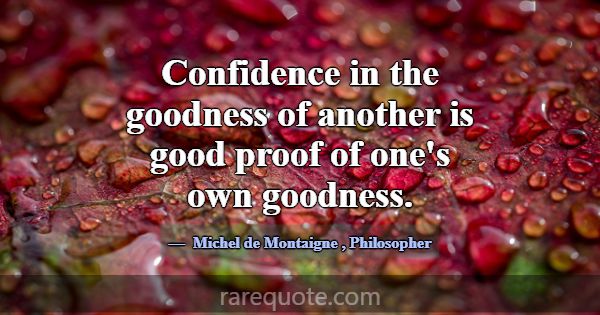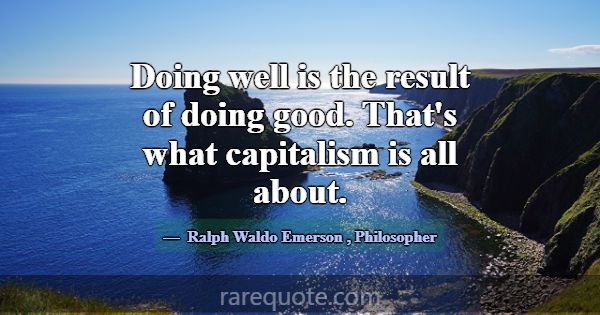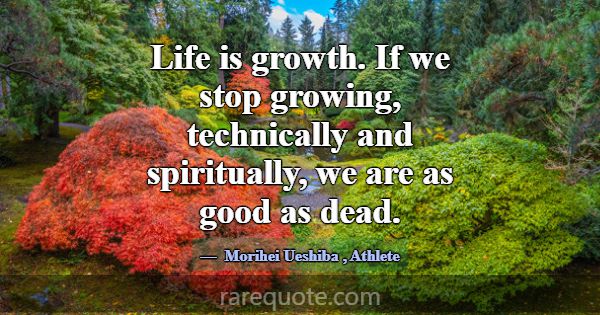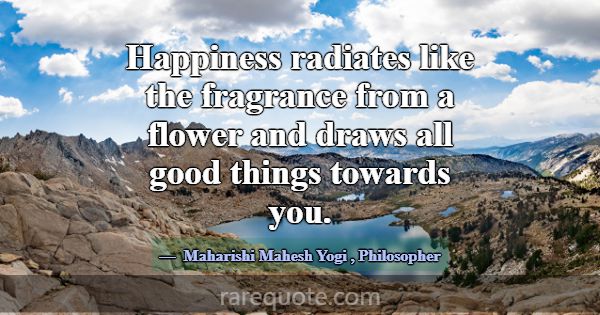Good Quotes - Page 5

This quote suggests that when individuals have trust and confidence in the inherent goodness of others, it reflects positively on their own character and moral standing. It implies that the ability to recognize and appreciate goodness in others serves as evidence of one's own virtuous nature. It underscores the idea of the interconnectedness of goodness and the capacity to recognize it in others.

This quote relates doing good deeds or engaging in ethical behavior to achieving success or doing well in a capitalist system. It suggests that in capitalism, individuals who act in a morally upright and responsible manner tend to reap rewards and succeed. It implies that capitalism operates on the principle of rewarding virtuous actions and ethical conduct. It underscores the idea of the relationship between moral actions and success in a capitalist society.
This quote suggests a correlation between physical beauty and moral goodness. It implies that those who possess inner goodness will naturally radiate beauty in their appearance. It underscores the idea that true beauty goes beyond external features and is reflected in one's character and actions.

This quote underscores the importance of honesty and integrity. It suggests that while there may be perceived justifications or incentives to lie, the inherent value and superiority of truthfulness outweigh any potential benefits of deceit. It implies that telling the truth is the morally and ethically superior choice, emphasizing the fundamental importance of honesty in personal relationships and society.

Success and fulfillment in life are not solely determined by the circumstances or advantages one possesses, but rather by how effectively one navigates and makes the most of challenging situations. It emphasizes the importance of resilience, adaptability, and making the best of the resources at hand.
This quote reflects the personal philosophy of the speaker, emphasizing the importance of gaining diverse experiences and embodying virtues to lead a fulfilling life.
This quote uses a theatrical metaphor to describe life. It suggests that life can be enjoyable and reasonably good overall, but there may be specific phases or periods (the "third act") that are poorly scripted or less satisfying. It acknowledges the ups and downs inherent in the human experience.
This quote implies that receiving no news or updates during the early morning hours is a positive outcome. It suggests that waking up to silence or absence of information can be a relief or a sign of tranquility. It underscores the idea that being free from disturbing or distressing news can contribute to a sense of peace and well-being.

This quote reflects the idea that choosing to act morally and virtuously is preferable to engaging in evil actions. However, it acknowledges that embodying goodness often requires significant effort, sacrifice, or struggle, suggesting that the path to goodness may involve facing challenges or making difficult choices.

This quote metaphorically equates personal growth, both intellectual and spiritual, with vitality and life. It implies that stagnation or a lack of progress in these aspects can lead to a state of being devoid of purpose or fulfillment, akin to being figuratively "dead."

This quote expresses the speaker's belief in the positive impact of high-quality journalism and television programming. It suggests that through informative and ethical media content, positive change and improvement in society can be achieved.
This quote emphasizes the significant role and value of a good teacher in education and personal development. It suggests that the speaker holds a strong belief in the positive impact that skilled and dedicated educators have on students.

This quote emphasizes the importance of displaying good manners and etiquette, even in the face of other people's rude or impolite behavior.
This quote speaks to the divine nature of good and evil. It suggests that both good and evil are part of God's creation and exist as integral elements in the world. It implies that these contrasting forces are under the control or purview of God. It underscores the idea of the theological understanding of the coexistence of good and evil within God's plan.
Popular Topic
- Age
- Alone
- Amazing
- Anger
- Anniversary
- Architecture
- Art
- Attitude
- Beauty
- Best
- Birthday
- Brainy
- Business
- Car
- Chance
- Change
- Christmas
- Communication
- Computers
- Cool
- Courage
- Dad
- Dating
- Death
- Design
- Diet
- Dreams
- Easter
- Education
- Environmental
- Equality
- Experience
- Failure
- Faith
- Family
- Famous
- Father's Day
- Fear
- Finance
- Fitness
- Food
- Forgiveness
- Freedom
- Friendship
- Funny
- Future
- Gardening
- God
- Good
- Government
- Graduation
- Great
- Happiness
- Health
- History
- Home
- Hope
- Humor
- Imagination
- Independence
- Inspirational
- Intelligence
- Jealousy
- Knowledge
- Leadership
- Learning
- Legal
- Life
- Love
- Marriage
- Medical
- Memorial Day
- Men
- Mom
- Money
- Morning
- Mother's Day
- Motivational
- Movies
- Moving On
- Music
- Nature
- New Year's
- Parenting
- Patience
- Patriotism
- Peace
- Pet
- Poetry
- Politics
- Positive
- Power
- Relationship
- Religion
- Respect
- Romantic
- Sad
- Saint Patrick's Day
- Science
- Smile
- Society
- Space
- Sports
- Strength
- Success
- Sympathy
- Teacher
- Technology
- Teen
- Thankful
- Thanksgiving
- Time
- Travel
- Trust
- Truth
- Valentine's Day
- Veterans Day
- War
- Wedding
- Wisdom
- Women
- Work







